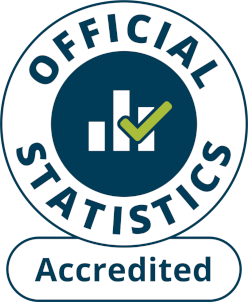Rail passenger numbers and crowding on weekdays in major cities in England and Wales: 2018
Rail passenger numbers and crowding statistics on weekdays across 14 major cities in England and Wales during 2018.
Documents
Details
Explore our interactive dashboard.
In 2018, passenger arrivals have increased in most major cities. This is in line with the growth in rail journeys seen in recent years.
-
London remains the city with the highest rail passenger numbers with 8 times more passengers across the day than Birmingham, the city with the second highest.
-
During peak hours, more than 230,000 passengers were standing on trains in London. However, morning peak crowding in London is the lowest since 2014.
-
In other cities, the number of standing passengers was much lower. After London, the next highest was Birmingham with 17,300 standing. However, the percentage of passengers standing has grown across seven major cities.
-
Using the PiXC measure, Cambridge had the highest crowding level of 4.8% with 800 passengers over train capacity.
Background information on the rail passenger numbers and crowding statistics and how they are collected can be found in the notes and definitions.
Rail statistics enquiries
Email rail.stats@dft.gov.uk
Media enquiries 0300 7777 878
